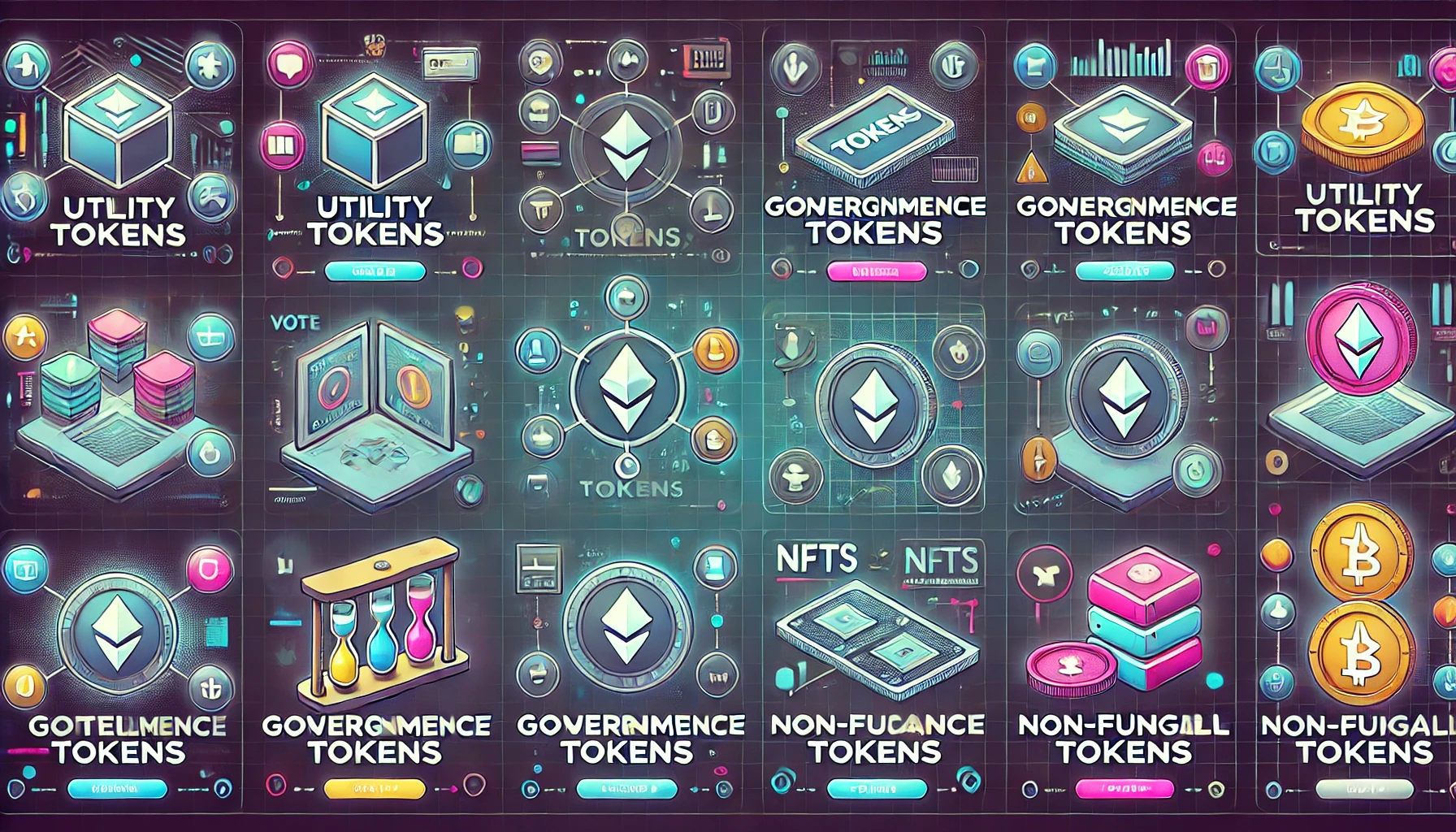Blockchain technology is reshaping the digital economy by introducing various types of tokens that serve multiple purposes. Understanding these tokens is crucial for navigating the emerging digital landscape.
What are Types of Tokens on Blockchain?
Understanding the types of tokens on blockchain is essential for navigating the digital economy. Blockchain tokens are digital assets created, managed, and transferred on blockchain networks. They serve various purposes, from representing ownership of assets to facilitating decentralized applications. In this article, we will delve into the different types of tokens on blockchain, their origins, how they work, and their pros and cons.
Background of Blockchain Tokens
Blockchain technology has revolutionized how we perceive and manage digital assets. With the advent of tokens, the potential applications of blockchain have expanded significantly. Tokens can represent anything from cryptocurrencies to real-world assets, enabling new forms of economic activity and digital interaction.
Origin/History
The concept of tokens on blockchain can be traced back to the inception of Bitcoin, the first cryptocurrency, in 2009. However, the development of Ethereum in 2015 marked a significant milestone by introducing the concept of smart contracts, which allowed for the creation of various types of tokens.
| Year | Event | Description |
| 2009 | Bitcoin Launch | Introduction of the first cryptocurrency. |
| 2015 | Ethereum Launch | Introduction of smart contracts and the ERC-20 standard. |
| 2017 | ICO Boom | Surge in Initial Coin Offerings (ICOs), raising capital through token sales. |
| 2020 | DeFi Explosion | Decentralized Finance (DeFi) platforms gain popularity, utilizing various token types. |
Types of Tokens on Blockchain
There are several types of tokens on blockchain, each serving a unique purpose. Here are the main categories:
- Cryptocurrency Tokens: These are digital currencies like Bitcoin and Ethereum that serve as a medium of exchange.
- Utility Tokens: These tokens provide access to a product or service within a blockchain ecosystem. For example, Filecoin tokens allow users to access decentralized storage services.
- Security Tokens: Represent ownership in an asset, such as shares in a company, and are subject to regulatory oversight.
- Non-Fungible Tokens (NFTs): Unique tokens that represent ownership of a specific item, such as digital art or collectibles.
- Governance Tokens: Allow holders to vote on decisions within a blockchain project, such as changes to protocols or fund allocations.
How Token-Based Authentication Works?
Token-based authentication is a method of verifying identity in digital environments. It involves issuing a token to a user after successful login, which the user then uses to access various resources without needing to re-enter credentials.
This method enhances security by reducing the need for password transmissions and allowing for fine-grained access control.
Key Companies in Blockchain Token Development
Several companies play a pivotal role in the development and management of blockchain tokens. These companies have contributed significantly to the advancement and adoption of various token types.
Ethereum
Ethereum is the leading platform for creating and managing tokens. It introduced the ERC-20 standard for fungible tokens and the ERC-721 standard for NFTs. Ethereum’s smart contract functionality has been instrumental in the proliferation of utility and security tokens.
Emurgo Africa
Emurgo Africa focuses on advancing blockchain adoption and education in Africa. They play a critical role in the Cardano ecosystem, supporting projects that leverage Cardano’s blockchain to create innovative token solutions.
Coinbase
Coinbase is a major cryptocurrency exchange that supports a wide range of tokens. It provides a platform for users to buy, sell, and manage their tokenized assets securely.
Examples/Applications
Tokens have numerous applications across different sectors:
| Category | Examples |
| Cryptocurrencies | Bitcoin, Ethereum |
| DeFi | Uniswap, Aave |
| NFTs | CryptoKitties, NBA Top Shot |
| Utility Tokens | Filecoin, Basic Attention Token (BAT) |
Understanding these applications can help you grasp the versatility and potential of blockchain tokens in various industries.
Key Points
- Cryptocurrency Tokens serve as a medium of exchange, like Bitcoin and Ethereum.
- Utility Tokens grant access to services within a blockchain ecosystem.
- Security Tokens represent ownership in assets, subject to regulatory oversight.
- Non-Fungible Tokens (NFTs) are unique tokens representing ownership of specific items, like digital art.
- Governance Tokens allow holders to participate in decision-making within blockchain projects.
Resources
- Emurgo Africa. Types of Tokens on Blockchain.
- Core Devs Ltd. Types of Token-Based Authentication.
- CoinDesk. The Different Types of NFTs: A Simple Guide.

